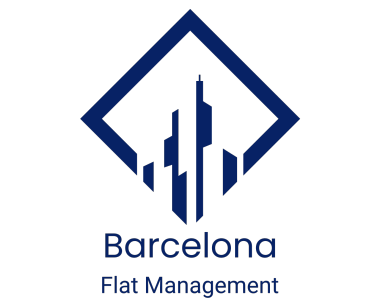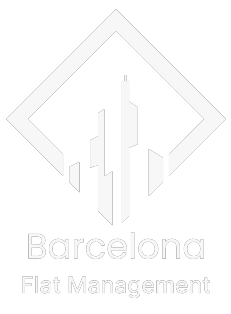Barcelona’s real estate market, known for its vibrancy and dynamism, stands at the cusp of significant transformation. As one of Europe’s most enchanting cities, it continuously evolves, influenced by global trends, local policies, and cultural shifts.
This article aims to delve into the future, exploring and predicting the trends likely to shape Barcelona’s property landscape. From technological innovations to shifts in lifestyle preferences, we’ll navigate the potential changes, providing insights into what the future may hold for this ever-changing market.
Embracing Green Futures: Sustainability’s Impact on Barcelona’s Real Estate
Barcelona is riding the crest of a significant shift towards sustainable living, reflecting a global trend of eco-consciousness in real estate. This movement is not just a fleeting trend but a profound change in how properties are developed and renovated. Increasingly, developers and homeowners in Barcelona are prioritizing eco-friendly designs, energy-efficient systems, and sustainable materials in both new constructions and renovations.
This surge in green living is evident in the rising number of buildings acquiring LEED and BREEAM certifications, signaling a commitment to environmental standards. Features like solar panels, green roofs, and efficient waste management systems are becoming more commonplace. Additionally, the integration of smart technology for energy conservation is gaining traction, with systems that monitor and optimize energy use, thereby reducing the carbon footprint of properties.
Furthermore, renovations of existing structures are being undertaken with a focus on sustainability. This includes retrofitting older buildings with energy-efficient windows, insulation, and renewable energy sources, aligning with the city’s goals for a more sustainable future.
The embrace of eco-friendly living in Barcelona’s real estate market is not only a response to environmental concerns but also a reflection of changing consumer preferences. As awareness grows, the demand for sustainable properties is set to increase, influencing the future landscape of Barcelona’s real estate market significantly.
Tech-Driven Transformation: Revolutionizing Barcelona’s Property Management
Barcelona’s real estate market is experiencing a tech-driven revolution, significantly reshaping property management and buyer experiences. Advancements in smart home technology and the Internet of Things (IoT) are at the forefront of this transformation. Smart homes equipped with IoT devices offer unprecedented convenience and efficiency, allowing for remote control of lighting, heating, security systems, and more. This integration of technology elevates living standards and is increasingly becoming a deciding factor for buyers and renters in Barcelona.
The impact of these technologies extends beyond individual homes to encompass entire buildings and complexes. Advanced systems now enable more efficient property maintenance, energy management, and security protocols, enhancing the overall appeal of properties. Real estate agents and property managers are leveraging these technologies to offer virtual tours and augmented reality experiences, making property viewing more accessible and engaging.
Looking ahead, we can expect further integration of AI and machine learning in property management. These technologies will likely bring more predictive maintenance, personalized tenant experiences, and smarter energy consumption.
As Barcelona continues to embrace these technological advancements, the real estate market is set to become more efficient, secure, and appealing. This tech-centric approach not only caters to modern lifestyle demands but also sets the stage for future innovations in the sector.
Post-Pandemic Paradigms: Adapting to New Housing Preferences in Barcelona
The COVID-19 pandemic has significantly reshaped housing preferences and demands, with lasting implications for Barcelona’s real estate market. A notable shift is the increased demand for properties that accommodate remote work. This trend has amplified the need for homes with dedicated office spaces, reliable internet connectivity, and quieter environments. As a result, areas in Barcelona that offer a balance of tranquility and connectivity are gaining popularity.
The pandemic has also influenced the type of properties in demand. There’s a growing preference for larger spaces, outdoor areas, and less densely populated neighborhoods. Properties with balconies, terraces, or proximity to parks are particularly sought after, as people seek better quality of life within their living spaces. This shift is leading to heightened interest in areas outside the city center, where such features are more common and affordable.
Furthermore, the pandemic has heightened awareness of health and wellness, leading to increased interest in properties with health-conscious amenities like better ventilation systems and access to fitness facilities.
These changes in housing preferences are likely to have a lasting impact on Barcelona’s real estate market. As buyers and renters prioritize space, comfort, and wellness, we may see a reshaping of the city’s property landscape, with evolving demands influencing both the location and types of properties that are sought after.
Adapting to New Rules: The Impact of Regulatory Changes on Barcelona’s Real Estate
Barcelona’s real estate market is poised for transformation, influenced by potential regulatory changes in rental laws and zoning regulations. These changes are expected to significantly impact market dynamics, influencing both investors’ strategies and developers’ plans.
Rental law reforms, particularly those focusing on short-term rentals, could reshape the market. Stricter regulations may limit the availability of short-term rental properties, affecting tourism-centric investments. This could shift investor focus towards long-term residential rentals, potentially stabilizing the market but also requiring adaptations in investment models.
Zoning regulation changes could also play a key role. Modifications in land-use policies might open up new areas for development or restrict certain types of constructions, impacting property values and investment attractiveness. Developers might need to pivot their focus towards building types and areas that align with the new regulations, potentially increasing interest in sustainable and community-focused projects.
Investors and developers can adapt by staying abreast of policy developments and remaining flexible in their strategies. Diversifying portfolios to include a mix of property types and focusing on long-term value creation could be key in navigating these changes. As Barcelona’s real estate landscape evolves with these regulatory shifts, adaptability and foresight will be crucial for success in the market.
Navigating Tomorrow’s Market: Strategies for Future Real Estate Success in Barcelona
In conclusion, Barcelona’s real estate market is navigating through a sea of change, shaped by emerging trends and predictions. The rise of sustainable living and technological advancements are setting new standards in property development and management. Post-pandemic shifts have altered housing demands, favoring spaces suited for remote work and wellness. Regulatory changes loom on the horizon, potentially reshaping rental and zoning landscapes.
Success in this evolving market hinges on adaptability and informed decision-making. Investors and developers who stay ahead of these trends, embrace innovation, and remain flexible in their strategies will be best positioned to capitalize on the opportunities of Barcelona’s dynamic real estate future. As the city continues to evolve, those who adapt swiftly and smartly will lead the way in the real estate sector.













